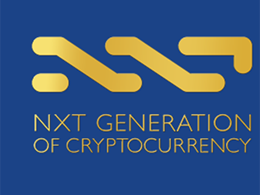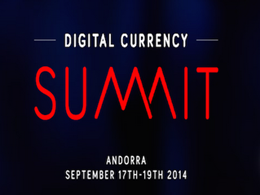
Bitcoin Now a New Currency at Bitpalace
Bitpalace customers can now pay with "Bitcoin", the cryptographic currency. The software developer and internet service provider is among the first companies to accept Bitcoin comprehensively, for any amount and any service.
With conventional currencies like the Euro, Dollar or Pound market participants trust that they will receive a value equivalent to their money, such as merchandise or services. The equivalent value is secured by national economic performance, raw material resources and precious metals owned by the country issuing the currency. Conventional currencies are useful because they are accepted everywhere. Each market participant trusts that all other market participants exchange the currency against merchandise or another currency. But what happens when monetary policy changes, a crisis develops or there is a threat of war, tax revenues dwindle or a natural catastrophe destroys industrial plants or agriculture and by extension a country’s economic power? The value of conventional currencies becomes unstable and market participants lose their assets.
In 2008, "Satoshi Nakamato" – a pseudonym whose identity has not been revealed to this day – proposed a new currency lacking these dangerous properties. This idea became the basis of what is now known as “Bitcoin”, a currency whose fractions are affectionately referred to as “Satoshis”, in honor of its inventor. Bitcoin is a cryptographic currency. It’s value is not secured by raw material reserves or precious metals. There is no nation state or group of states guaranteeing the exchange of Bitcoin against certain goods or services. Bitcoin is not even available in the form of physical coins or paper money. It is merely a collection of large, encrypted numbers. Even so, the number of people owning, paying with and accepting Bitcoin is growing steadily. This may be caused by the fact that Bitcoin is a globally available and decentralized currency, not governed by individuals or groups, but by a community made up of all market participants. Bitcoin’s stability depends on the number of Bitcoin users and their faith that others will exchange goods and services against Bitcoin. The currency’s market value is governed by supply and demand. Bitcoin is independent from national policy, crises and natural catastrophes.
A Bitcoin is a very large, encrypted number stored in a data memory distributed across all Bitcoin users worldwide. A large database, the so-called “block chain”, stores all Bitcoin transactions ever made. Using the block chain it is possible to verify the amount of Bitcoins any user owns at a given time. Owners are not identified by name, but by a cryptographic key. This makes is possible to check the validity of Bitcoins. However, the Bitcoin assets of individual participants or their identity cannot be determined.
A Bitcoin owner can transfer Bitcoins to others to pay for goods or services. Since the block chain is not utilized by individual users, but managed by all Bitcoin owners, no individual Bitcoin user can falsify data in the block chain in order to get more Bitcoins. Bitcoins must be acquired by supplying goods or services, through the exchange of conventional currency against Bitcoin or mined through time-consuming calculation algorithms. To mine Bitcoins unique numbers with specific cryptographic properties must be found. This requires such a large number of arithmetic operations that miners have begun to use computer chips specially developed for this task. But what sounds like a potential gold rush is expensive and rather risky, since all these computations require ample processing power, which can only be generated through lots of hardware and electricity. A miner has no way of knowing how many computations will lead him to the next valid numeric value. He may have increased his assets, but he may also have invested more in electricity and hardware than he gets out of his mined Bitcoins.
Due to the increasing distribution of Bitcoin, its independence from economic spaces and the mathematically limited number of Bitcoins in circulation, Bitcoin has become a stable alternative to conventional currencies. In exchange systems similar to stock-markets Bitcoins can be exchanged back into conventional currencies.
Up to now, only few companies have realized the possibilities of the new currency or shy away from its rate fluctuations. Internet service provider and software developer Bitpalace views Bitcoin as an alternative currency of the future with great potential. Therefore, Bitpalace already enables its customers to use Bitcoin to pay for all the services in its portfolio, in any amount.
Related News





